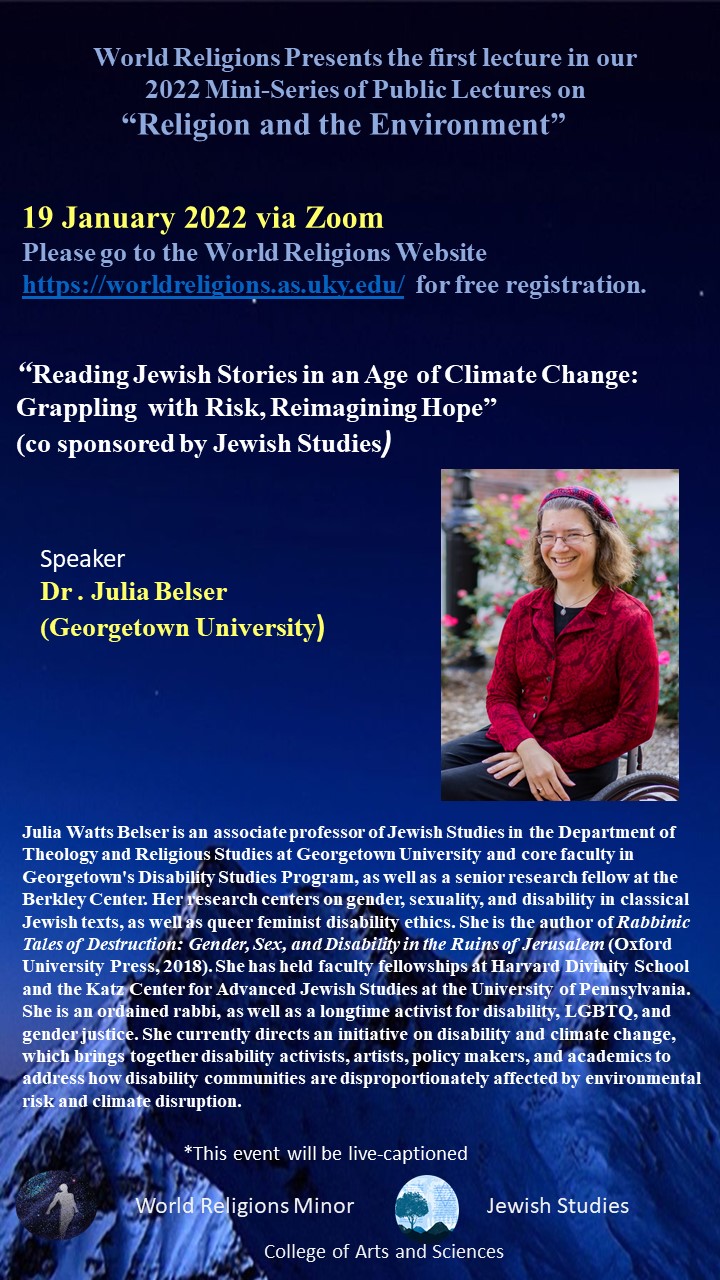"Reading Jewish Stories in an Age of Climate Change: Grappling with Risk, Reimagining Hope"
Please register for this event! It's free! You can register at https://uky.zoom.us/webinar/register/WN_bR33A2dnRD6B4Yf4D9Zb6Q
This is the first lecture in the mini-series sponsored by World Religions on "Religion and the Environment".
Julia Watts Belser is an associate professor of Jewish Studies in the Department of Theology and Religious Studies at Georgetown University and core faculty in Georgetown's Disability Studies Program, as well as a senior research fellow at the Berkley Center. She is the author of Rabbinic Tales of Destruction: Gender, Sex, and Disability in the Ruins of Jerusalem (Oxford University Press, 2018). She has held faculty fellowships at Harvard Divinity School and the Katz Center for Advanced Jewish Studies at the University of Pennsylvania. She currently directs an initiative on disability and climate change, which brings together disability activists, artists, policy makers, and academics to address how disability communities are disproportionately affected by environmental risk and climate disruption.

